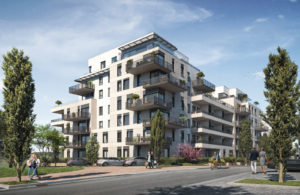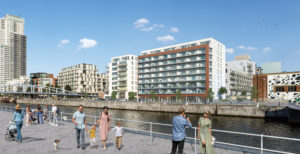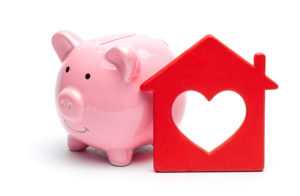Right now you can invest in property with relatively limited funds”
- Home
- Latest news
- invest
- Right now you can invest in property with relatively limited funds”
Go back to all the latest news
Right now you can invest in property with relatively limited funds”
Are you considering investing in property, but don’t quite know where to begin? This interview with Kim Ruysen, a property expert, is a good point at which to start.
“The average Belgian is afraid of investing in the stock market,” is how Ruysen explains the prevailing preference for property in Belgium, “and that isn’t really surprising.” Bricks are tangible. If you buy an apartment, you can see it and do what you want with it. This gives you a sense of security. On top of that, you can quickly release the money you’ve put into property again. In principle you can sell a property in three to four months if you have to release equity. On the other hand, many investors at present are riding on the wave of low interest rates. Right now you only need limited funds to be able to invest in property. Finally there are also quite a few people who invest in property through a usufruct structure to optimise their children’s and grandchildren’s inheritance. They buy an apartment that they live in or rent out themselves, but ownership goes to the children so that the children enjoy a tax benefit that should not be underestimated.”

Low interest rates have pushed up property prices. Does it still make sense to invest in property?
“It’s true to say that it has become very difficult to find good investments in traditionally expensive areas such as Avenue Louise in Brussels or the European district. Investors are therefore less keen on property in these areas, because they know that while it will retain its value it will not yield a premium. “On top of that, rent levels in these areas are so high that there is a real risk of properties being left vacant.”
“What we recommend and what we are on the look-out for ourselves is up-and-coming neighbourhoods where there is a greater chance of added value, such as the Vaartkom in Leuven or our Canal Wharf project on the canal in Brussels opposite Tour&Taxis. Canal Wharf was still quite run down ten years ago. Now you can see one residential project after another rising up. It’s a completely new district. The people who are investing there now are far less interested in an immediate return. They are looking instead for added value in the long term.”
What is the difference between return on investment and added value?
“The classic investor only looks at return. He is not greatly concerned about the location of a property, he just cares about what a property will yield for him annually. He will work out that return on investment by calculating the difference between rent level and purchase price. People who focus on added value buy a property with the intention of selling it again within X number of years at a higher price. Whether they rent out the apartment in the meantime for 900 or 1000 euros a month is less important to them. At present we are increasingly seeing less of a focus on extracting maximum return. And I quite understand. By setting realistic rent levels they can be sure that the tenant will stay as long as possible and will cause fewer problems. If you set rent on the high side there is a risk that your property will be empty for three to four months every two years. And then you’ve lost your return.”
“Location! We always make sure we’re in a location where the the population is increasing. In cities such as Brussels, Mechelen and Antwerp the population is still on the rise. A second tip for first-timers is lettings management. A lettings management agency will take over all the work for you: they look for the tenants, prepare the inventory, collect the rent money and organise maintenance services. This gives new investors crucial support, so that they don’t have to dive in at the deep end. We see many experienced investors making use of a management service. If you own four or five properties, you don’t have enough time to manage everything yourself. Thirdly it’s important to think about the right things when choosing between existing property and new-builds. In theory it’s possible to achieve a very good return on existing property. But in practice you often encounter hidden defects that cause your return to plummet. That rarely happens with new-build property. My last and perhaps most important tip for first-time investors is always to assume the worst case scenario rather than the best case scenario. For example, take into account the property being vacant for one month a year, property tax, insurance … If it then turns out better than expected, as it usually does, then you’re left with an extra budget.”



